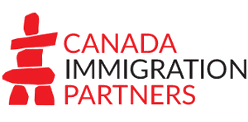Apply for a Post-Graduate Work Permit
Canada is Keen to Keep Graduates in the Country, Making This Work Permit Route a Great Path to Permanent Residency.

PGWP: Work in Canada After University
The Post Graduate Work Permit (PGWP) allows students to remain in Canada after graduation, providing a great opportunity to get Permanent Residence as a result.
The work permit is valid from eight months to three years and is defined by the duration of your studies. The permit allows you to work for any employer in Canada and is your opportunity to gain the crucial skilled Canadian work experience that is essential to transition to permanent residence.
To be eligible you must have studied at a recognized institution and completed the credential.
The pandemic introduced new policies around the eligibility and issuance of PGWP. This has resulted in confusion about eligibility, something we will provide clarity on later.
Most people, when speaking with us or searching online, use the phrase Post-Graduate (not graduation) Work Permit. We will use this popular form through the rest of the article.

More About Matt and Miho
As immigrants we founded Canada Immigration Partners to help people navigate the twists and turns of immigrating to Canada.
For us this is more than a business. We do this because we genuinely care.
We’ve been through this process, know it intimately, and understand the payoff of achieving your dream move to Canada. Miho came here from Japan and I emigrated from England.
When you work with us you get more than an incredibly dedicated team. You get a partner in your entire immigration process, from start to finish.
Get the tailored advice you need from an immigration expert. Schedule your personalized consultation today!
Ready To Get Started!
What is a Post-Graduate Work Permit?
A Post-Graduate Work Permit (PGWP) for Canada allows students who have graduated from a school listed on the rather catchily titled “Designated Learning Institution” to work temporarily in Canada. It’s a great way for you to get Canadian work experience, essential for your Permanent Residence application if that is your goal.
Wonderfully, the permit allows you to work for any employer anywhere in Canada. Better still, this means you don’t require a job offer before applying for the PGWP, the only caveat being you must apply within 180 days of receiving either your final transcripts or after being awarded your degree, whichever comes first.
It’s essential to note that a PGWP is a one-time opportunity to work in Canada after graduation, and maintaining eligibility for the permit requires compliance with all immigration requirements.
How Long Will my Work Permit Last?
The length of your Post-Graduate Work Permit is defined by how long you studied. If your study period is eight months to less than two years, the PGWP will be valid for the same length of time. If you studied for two or more years your PGWP will be valid for three years.
Additionally, if you complete multiple academic programs in Canada, which add up to two years or more, you may be eligible for a three-year PGWP, provided that they meet certain eligibility requirements.
Am I Eligible to Apply for a Post-Graduate Work Permit?
To be eligible to apply for a Post-Graduate Work Permit in Canada, you must meet the following basic requirements:
- – You must have completed an eligible full-time program of study at a designated learning institution (DLI) in Canada.
- – You must have studied in Canada for at least eight months, and your program must have been at least eight months long.
- – You must have a valid study permit when you apply for the PGWP.
- – You must have graduated from an eligible program within the last 180 days.
- – You must have continuously studied full-time in Canada and met the requirements of your program while you were studying.
- The Covid-19 Pandemic brought two changes to this. The first (Full Facilitation Measure, which enabled you to study 100% of the time online from outside Canada) is no longer relevant as it expired on August 31, 2022.
- What is still relevant is the second temporary change (Reduced Facilitation Measures), which allows you to study up to 50% of the time online and outside Canada. This change started on September 1, 2022, and is in place until August 31, 2023.
It’s important to note that meeting these criteria does not guarantee that you will be granted a PGWP. The decision to issue a PGWP is ultimately up to the discretion of the Canadian government.
To read a full and detailed list of eligibility requirements visit Immigration, Refugees, Citizenship Canada (IRCC). Also, this page talks about the temporary changes to the PGWP as a result of Covid-19.
How to Apply for a PGWP (Post-Graduate Work Permit)
Applying for your PGWP in Canada involves four primary steps:
- Prepare your documents: This includes preparing all necessary supporting documents such as educational transcripts and degree, proof of completion of your program, identity and travel documents, etc., as required by the Canadian government’s immigration department. It is important to ensure that all documents are up-to-date, complete, and accurate.
- Submit an application online: All applications must be submitted through the Canadian government’s website. It will guide you through the process to make sure you provide all relevant information and upload all necessary documents.
- Pay applicable fees: You must pay via credit card (or other approved methods) any associated fees when submitting the application. It is important to note that these fees are non-refundable even if your application is declined.
- Wait and Receive a decision: Once your application has been submitted, it will be reviewed and a decision will be made based on the information provided in your application as well as any additional evidence requested during processing time. If your application is approved, you will receive an electronic grant letter stating your entitlement to a Post-Graduate work permit.
Applying for Permanent Residence (PR) After Gaining Your Post-Graduate Work Permit
There are two common paths to Permanent Residence (PR). Economic and Family Class. It is most likely that if you have chosen to study in Canada, you intend to pursue Economic Class immigration as your route to PR.
The main economic programs in the Express Entry selection process are Canadian Experience Class, Federal Skilled Worker, Federal Skilled Trades and Provincial Nominee Programs. Our pages provide further details on these immigration routes. Additionally, a consultation with Miho or myself will provide some clarity on the path ahead for you even if you want to submit the application yourself.
It is important to note that your work under the PGWP needs to be considered skilled in order to make sure you have enough points to qualify for Permanent Residence. The National Occupations Classification (NOC) distinguishes between skilled and unskilled jobs.
What Our Clients Say
We are a one-stop solution for all your Canada immigration needs. Find out more about us and our immigration services.
How We Work
WE CRAFT WITH CARE
We are diligent and caring. You can trust us to have your best interests at heart.
ARE METHODICAL BY NATURE
Sticklers for accuracy, Miho, Matthew, and our team leave nothing to chance with your application.
WORK QUICKLY ON YOUR CASE
Rest assured our methodical and careful natures don’t slow us down. We know how important this is to you.
AND HOPE TO GET YOU ON YOUR WAY
Matthew and Miho have been through the immigration process themselves. They get the significance of achieving Canadian Permanent Residency.
Frequently Asked Questions | Post-Graduate Work Experience (PGWP)
IRCC has a special policy in place during the coronavirus pandemic allowing international students to conduct distance learning at a Canadian Designated Learning Institution (DLI) and still be eligible for a Post-Graduate Work Permit (PGWP).
International students studying online from abroad before August 31, 2022 may do so without affecting their PGWP eligibility.
Starting on September 1, 2023, study time completed from abroad will be deducted from the length of an international student’s PGWP.
Having a Post-Graduate Work Permit (PGWP) in Canada comes with several benefits, including:
1. Gain Canadian Work Experience: A PGWP allows you to work in Canada for up to 3 years after you have completed your studies. This is a valuable opportunity to gain Canadian work experience, which can improve your chances of obtaining permanent residency in Canada.
2. Open Work Permit: A PGWP is an open work permit, which means that you are not tied to a specific employer or job. You can work for any employer in Canada, in any field of work.
3. Improve Language Skills: Working in Canada can help you improve your language skills and develop your professional communication skills in English or French, which are highly valuable skills in today’s global job market.
4, Financial Independence: With a PGWP, you can earn money to support yourself while living in Canada, and also have the opportunity to save money for your future goals.
5. Permanent Residency: The work experience gained during the PGWP period can also make you eligible for various immigration programs, such as the Canadian Experience Class (CEC), which can lead to permanent residency in Canada.
6. An accompanying spousal work permit is available for the spouses of Post-Graduate Work Permit holders working in skilled occupations. This allows the potential for two income streams and two separate opportunities to transition to PR.
Overall, having a PGWP can be a crucial stepping stone towards building a successful career in Canada and potentially becoming a Canadian permanent resident.
If you submitted your PGWP application online while you had a valid study permit, you may be eligible to start working full-time without a work permit while you wait for a decision on your PGWP application.
To be eligible, you must meet the following criteria:
- You have completed your program of study in Canada.
- You have a valid study permit at the time of your PGWP application.
- You have submitted an application for a PGWP before your study permit expires.
- You have a letter of completion or a transcript from your designated learning institution (DLI) confirming that you have met the requirements for completing your program of study.
If you meet these criteria, you may be authorized to work full-time while you wait for a decision on your PGWP application, but you must stop working if your application is refused.
It’s important to note that if you do not meet these criteria, you cannot work in Canada until you have received your PGWP. Once you receive your PGWP, you can start work.
Generally speaking, no. Post-Graduate Work Permits (PGWPs) can only be extended under certain circumstances.
For example if your passport expires before your PGWP end date, the Canadian Government will only issue a PGWP up until the passport expiry date. Then you could submit an extension to the Canadian Government for the balance of the time you are eligible for on the PGWP.
To avoid this it is important to ensure your passport is valid for the duration of your post graduate work permit you are eligible for.
Post-Graduate Work Permits are a once in a lifetime opportunity. You can not apply for another if you have already had one.
Hence the importance of making sure yours is a complete and decision ready application and that you make the most of the time to obtain Canadian skilled work experience.
Immigration, Refugees and Citizenship Canada (IRCC) may refuse a post-Graduate work permit application for several reasons.
Some of these reasons include: not meeting the requirements for issuance of the PGWP such as;
- Having an expired study permit;
- Failure to provide adequate supporting documents;
- Or providing fraudulent information in the application;
- Additionally, if IRCC finds that the PGWP would not be beneficial to Canada or if they believe there are reasonable grounds to suspect that you will engage in criminal activity while on your PGWP;
It is important to make sure you meet all criteria and provide accurate information when applying for a Post-Graduate work permit so that your application is approved quickly and easily.
If your Post-Graduate work permit application is refused by Immigration, Refugees and Citizenship Canada (IRCC), you will receive a letter explaining why it was refused.
You may be able to appeal the decision or submit additional documents or information to support your case.
If appealing the decision, it is important to file the appeal within 30 days of receiving the refusal notice from IRCC.
Additionally, you may also need to leave Canada immediately if your study permit has expired and IRCC has issued a removal order against you due to an unsuccessful application for a PGWP. It is always best to consult a qualified immigration lawyer or consultant before making any decisions in these matters.
The cost of applying for a Post-Graduate work permit is CAN$255. This is broken down into the $155 processing fee and $100 open work permit compliance fee. These fees are non-refundable, whether or not your application is approved.
It really depends on your circumstances.
If you applied for a Bridging Open Work Permit as part of a PR application or if you applied for a new work permit before your PGWP expired, yes, you are covered by Maintained Status to continue working until you receive a determination.
Most of the time, the latter needs a Labour Market Impact Assessment, or a LMIA-exempt job offer.
Yes, you can leave Canada while your post-Graduate work permit application is being processed. But you must have a valid temporary resident visa (also known as a visitor visa) or a valid Electronic Travel Authorization (eTA) in order to re-enter the country.
Yes, you can apply for permanent residence through Express Entry or any of the many other options while on Post-Graduate work permit. You will need to qualify for the requirements of your chosen program.
Yes, you can apply for health care coverage in Canada while on a Post-Graduate work permit. Each province and territory has its own requirements and restrictions regarding health insurance coverage. You will need to contact your local government office or ask your employer for more information.
Processing times for Post-Graduate Work Permit applications vary depending on the volume of applications received and the complexity of each application.
Generally, it takes 4-6 months from the date that you submit your complete application package until you receive a decision from Immigration, Refugees and Citizenship Canada (IRCC). See here for up-to-date IRCC processing times.
Yes, you can bring your spouse/common-law partner and dependent children with you when you come to Canada on a post-Graduate work permit.
You must submit an application for each family member and provide proof of financial support.
Yes, you can leave Canada while on a valid post graduate work permit. You may need a temporary resident visa to return to Canada if you are not a visa exempt national. Visa exempt nationals will need a valid Electronic Travel Authorization (eTA).
To be eligible for a Post-Graduate Work Permit (PGWP) you must study an eligible course at a designated learning institution (DLI) that is recognized to grant degrees, in Canada. The following are some of the universities and colleges in Canada that are on the list of DLIs, meaning they are eligible for PGWP:
- University of Toronto
- University of British Columbia
- McGill University
- McMaster University
- University of Alberta
- University of Calgary
- University of Waterloo
- Simon Fraser University
- York University
- University of Ottawa
- Toronto Metropolitan University
- Queen’s University
- University of Saskatchewan
- University of Manitoba
This list is not exhaustive, and many other universities and colleges in Canada are Designated Learning Institutions. Students applying for a PGWP should ensure that they attend a DLI in Canada to ensure they are eligible for the Post-Graduate Work Permit and other immigration programs.
To learn more about our Canada Immigration Partners services feel free to check out our social media links down below!
You can also contact us here or give us a call at 604-722-8930
Google Reviews
Post-Graduate Work Permit (PGWP)
Contact Us Now
Our consultations carefully assess your eligibility across Federal and Provincial programs and provide information on the best route for your particular circumstances while offering practical advice to get you closer to your goal. Consultations also provide information on current processing times, total costs and the opportunity for you to have your questions answered.
Canada Immigration Partners
More About Us
Get in Touch
VANCOUVER OFFICE:
Monday-Friday:
9AM to 5PM PST (GMT -8)
908 – 938 Howe Street
Vancouver, BC, V6Z 1N9
Get Directions
Schedule a Consult
Learn more about what we can do for you and book your immigration consultation here.
Please understand that, regardless of significance, we can only administer Canadian immigration advice and counsel within the context of a paid consultation or retained services. Free Canadian immigration information is available at the Immigration Refugees and Citizenship Canada (IRCC) website at www.cic.gc.ca or you can call the IRCC Call Centre at 1-888-242-2100 to speak with an agent.



